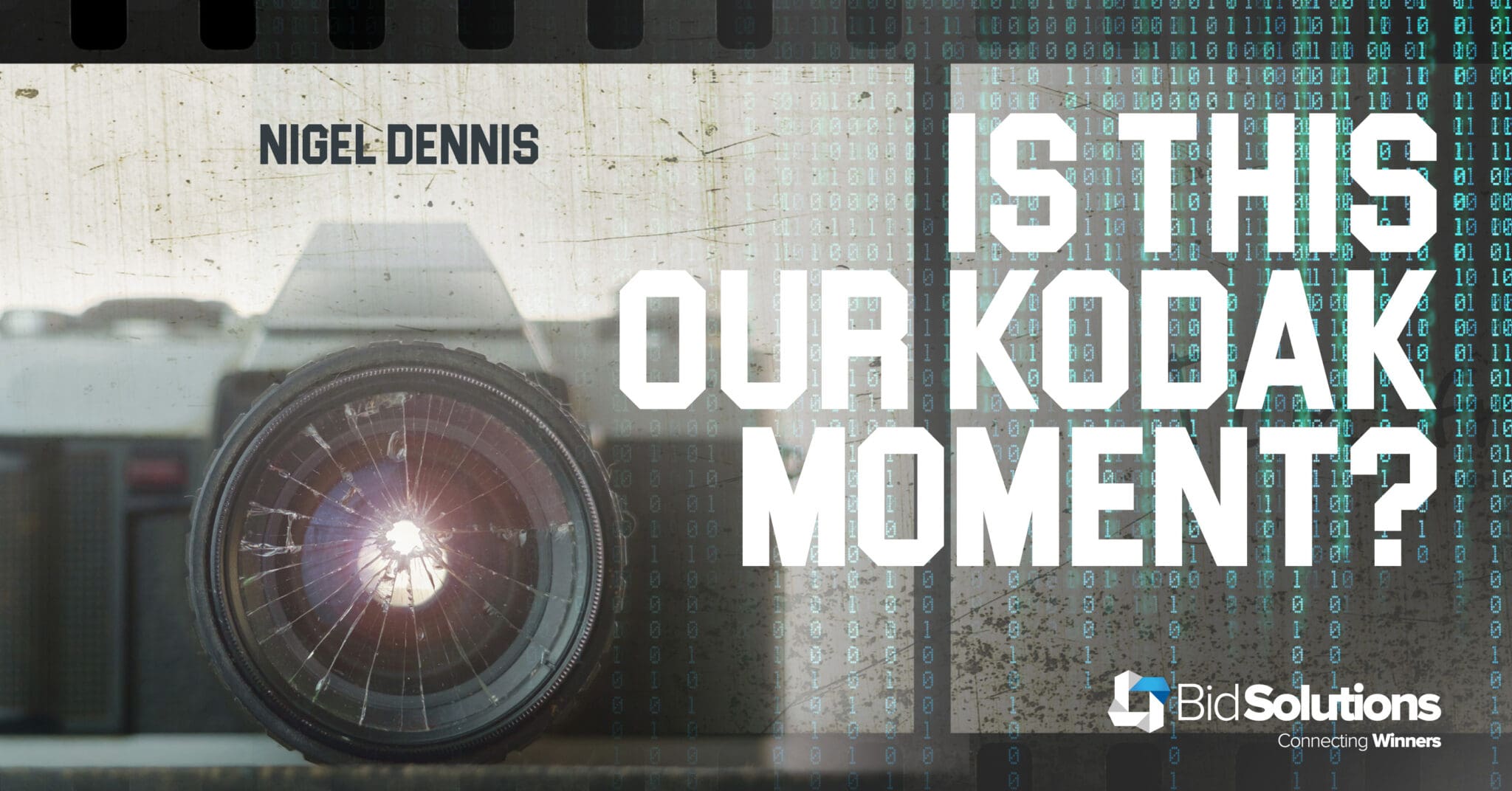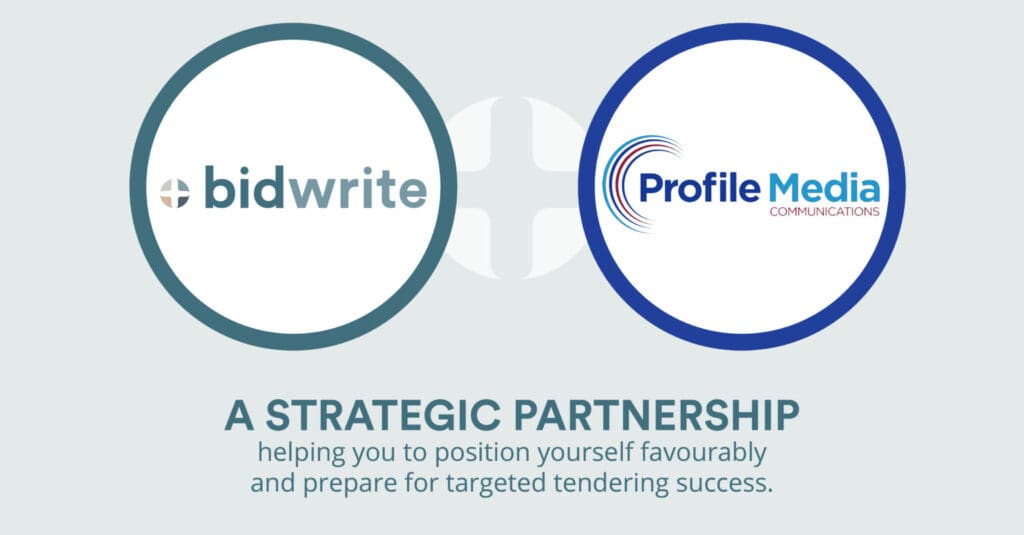Kodak was a company that dominated the world’s camera and photographic film market for more than 100 years. It was one of the most powerful and well-known brands in the world, and at one stage had 80% of the global market share in the field of photography.* A ‘Kodak moment’ even became a generic term for a memory worth saving. The term was as much a part of our lexicon as ‘Google it’ and ‘Zoom me’ are today.
However, with the introduction of digital technology, everything changed for Kodak, including the positive association attached to a Kodak moment. Ironically, one of its employees invented the digital camera. But Kodak refused to embrace the technology, and even actively marketed against it. The mass market of digital cameras took hold and Kodak suffered a slow decline over many years until it was finally declared bankrupt in 2012.
What keeps me awake at night?
As a business owner in the bid consulting industry, the one thing that keeps me awake at night is wondering when our Kodak moment might come. I used to think our fate was in the hands of the procurement community. What if they decide they could, one day, source goods and services without the need for a competitive bidding process? My business, and maybe our industry, would then have one foot in the proverbial grave.
But lately I have felt more threatened by current technology than by these ‘procurists’. The rise of automation and collaboration tools, online offerings, and open source chat forums are all potential risks to the very existence of my business and the livelihoods of those I employ. I’ve been feeling an unease I have never felt before. For the first time, I’ve felt somewhat like I imagine people may have during the Industrial Revolution of the 1800s and the Digital Revolution of late last century.
Should we be worried about technology?
I decided to consult a learned colleague with considerable worldwide experience in technology and tendering. I asked them, ‘Should I be worried about the threat of tendering technology to the bid consulting industry?’ Many of the readers of this magazine may know this colleague, so I will refer to them only with their initials, A.I. Here is their response…
‘The bid consulting industry has been impacted by technology, but there is no need to be overly worried about its threat. Technology can bring numerous benefits to the industry, such as increased efficiency, better collaboration, and higher accuracy. By embracing technology and using it appropriately, bid consulting firms can stay competitive and adapt to changing market trends. Digital tools can automate repetitive tasks, allowing the business to focus on higher-value activities and provide a higher quality of service to clients. However, it is important to balance the use of technology with the need for personal connection and relationship building with clients. While digital platforms and tools can simplify the bid process, they cannot replace the importance of human interaction and complex thought. By maintaining a balance between the use of technology and personal touch with clients, bid consulting firms can differentiate themselves from competitors and provide a higher level of service.’
Isn’t it more about context than content?
Reflecting on the response of my colleague, I figured the ability to get content, and quickly, is a key area of this technology debate. But is content generation by itself a threat? Much of this technology draws on content that already exists. Computers can’t really think new things, yet. They lack the critical thinking nuances of humans, to acknowledge empathy, or to realise a key moment of insight. Can they therefore communicate the most compelling solution to a buyer’s problem?
I concluded the human brain’s ability to bring context trumps plain content for the time being, at least in the world of competitive bidding we live in. That insight, plus the ability to interpret complex ideas, to be creative, and to imagine seems far more important to the world of winning than current technology. And until those attributes can be replicated by technology, let alone replaced by it, we still have a thriving industry with many opportunities.
Let’s embrace the opportunities!
So what can we learn from the Kodak case study? It was the ‘ignorance of new technology and not adapting to the changing market dynamics’ that initiated Kodak’s downfall.* Put more simply, it was how people reacted, or didn’t react, rather than what technology did.
I again asked my learned colleague A.I. for their opinion. ‘Technology will continue to advance even if humans do not actively accept it. However, embracing technology can bring numerous benefits, making it a valuable asset for the industry to leverage.’
So let’s welcome tendering technology and all its threats and opportunities with gusto, and leverage it appropriately. Imagine how much better we can be with it, and the time we can save. That mindset seems a much better alternative to me than a slow decline to business bankruptcy and future anonymity. And with that I think I can once again sleep much more soundly at night.
*Reference: https://startuptalky.com/kodak-bankruptcy-case-study/
Our thanks to Bid Solutions for inviting Nigel Dennis to contribute this piece to their latest edition of Bidding Quarterly magazine. You can download the full Issue 15 – Bid Technology: Stories of Triumph and Challenge here.







